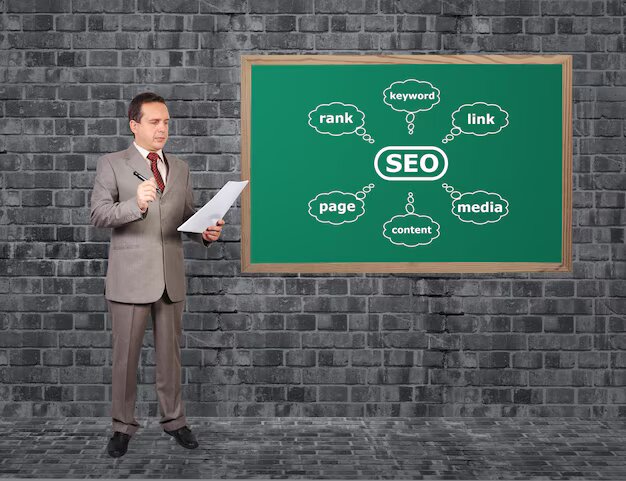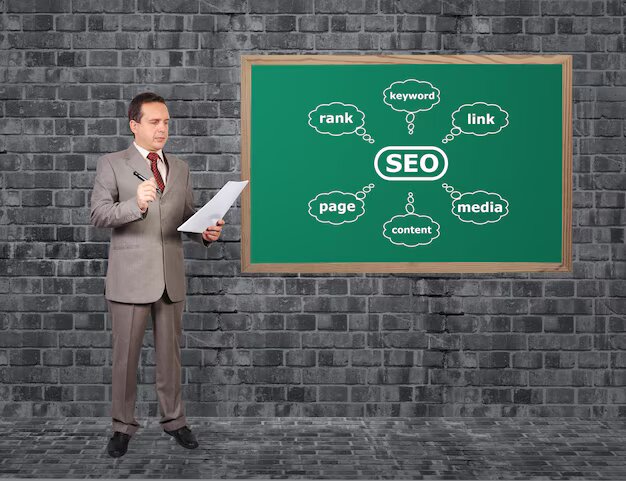
What are the Biggest Mistakes Companies Make When Building Their Seo Plans?
Many companies make critical errors in their SEO plans. These mistakes can hinder their online visibility and growth.
So, what are the biggest mistakes companies make when building their SEO plans? SEO is vital for any business aiming to thrive online. Yet, many businesses falter in their efforts. They often overlook key aspects of SEO strategy. Small errors can lead to significant setbacks.
This blog will explore the most common mistakes. We’ll discuss why these errors happen and how to avoid them. Understanding these pitfalls is crucial. It helps in crafting a successful SEO plan. Stay tuned to learn more about these common mistakes and improve your SEO strategy.
Ignoring Keyword Research
One of the biggest mistakes companies make in their SEO plans is ignoring keyword research. Effective keyword research is the foundation of any successful SEO strategy. It guides content creation and helps attract the right audience. Without proper keyword research, your SEO efforts might not yield the desired results.
Neglecting Long-tail Keywords
Many companies focus only on popular keywords. They forget the importance of long-tail keywords. These are longer and more specific phrases that users search for. Long-tail keywords often have less competition and higher conversion rates. They can help you reach a more targeted audience.
Consider this example:
| Short-Tail Keyword | Long-Tail Keyword |
|---|---|
| shoes | comfortable running shoes for women |
| laptop | best laptop for graphic design |
Focusing on long-tail keywords can improve your search rankings. It can also bring in users who are ready to make a purchase.

Misunderstanding User Intent
Another common mistake is misunderstanding user intent. User intent refers to what a user is actually looking for when they search for a keyword. There are different types of user intent:
- Informational: The user wants to learn something. Example: “how to bake a cake.”
- Navigational: The user is looking for a specific website. Example: “Facebook login.”
- Transactional: The user wants to buy something. Example: “buy iPhone 13.”
If you misunderstand user intent, your content might not meet the needs of your audience. This can lead to high bounce rates and low engagement. Make sure you align your content with the intent behind the keywords you are targeting. This will help you attract and retain users who find your content valuable.

Poor Content Quality
One of the biggest mistakes companies make in their SEO plans is poor content quality. Content is the backbone of any SEO strategy. If the content is lacking, the entire SEO effort suffers. Poor content can lead to low engagement, high bounce rates, and poor rankings. Below, we explore two key areas where companies often go wrong with content quality.
Lack Of Originality
Many companies fail by not creating original content. Copying content from other sources or using generic information can harm SEO efforts. Search engines prioritize unique content. When your content stands out, it attracts more visitors and keeps them engaged. Make sure your content offers new insights, unique perspectives, and valuable information.
Overuse Of Keywords
Keyword stuffing is another common mistake. Some companies think adding many keywords will boost their rankings. This is not true. Search engines can detect overuse of keywords and may penalize your site. Use keywords naturally. Focus on providing valuable information that includes keywords in a way that makes sense.
| Common Mistakes | Impact on SEO |
|---|---|
| Copying content from other sites | Low search rankings |
| Using too many keywords | Search engine penalties |
| Providing generic information | High bounce rates |
- Create unique and valuable content.
- Avoid copying from other sources.
- Use keywords naturally.
Ignoring Mobile Optimization
Many companies make the mistake of ignoring mobile optimization in their SEO plans. With more users accessing websites on mobile devices, this can lead to major traffic losses. Mobile optimization is no longer optional; it’s essential. Failing to optimize for mobile can negatively impact user experience and search engine rankings.
Slow Load Times
Slow load times on mobile devices can frustrate users. Studies show that users leave a site if it takes more than three seconds to load. This high bounce rate can damage your SEO. Search engines prioritize sites that load quickly on all devices. To improve load times, compress images and use efficient coding practices.
Unresponsive Design
An unresponsive design does not adapt to different screen sizes. This means users may struggle to navigate your site on mobile devices. A poor user experience can lead to higher bounce rates and lower rankings. Ensure your site uses a responsive design framework. This will make it easy to use on all devices. Mobile-friendly designs lead to better engagement and higher search rankings.

Lack Of Regular Updates
Lack of Regular Updates is a common mistake that can significantly hinder a company’s SEO performance. Search engines prioritize fresh, relevant content. This means outdated information and irregular content posting can harm your website’s rankings. Let’s explore these aspects in detail.
Outdated Information
Websites with outdated information can quickly lose their audience’s trust. Visitors expect accurate and up-to-date content. If they find old data, they might leave your site immediately. This increases your bounce rate and negatively impacts your SEO.
Ensure that all pages contain recent and relevant information. Regularly review and update your content. Correct any inaccuracies. This practice keeps your website valuable and reliable.
Irregular Content Posting
Irregular content posting confuses both your audience and search engines. Consistency is key in SEO. Search engines favor websites that frequently post new content. A steady flow of fresh articles signals that your website is active and relevant.
Develop a content calendar to maintain regular posting. Stick to a schedule. Whether it’s weekly or bi-weekly, consistency helps improve your search engine rankings. It also keeps your audience engaged and coming back for more.
| Common Mistakes | Impact on SEO |
|---|---|
| Outdated Information | Increases bounce rate, reduces trust |
| Irregular Content Posting | Confuses search engines, lowers rankings |
Neglecting Link Building
Many companies overlook link building in their SEO plans. This is a critical error. Link building plays a significant role in improving website rankings. Without a strong link-building strategy, your website may struggle to gain visibility.
Ignoring Backlinks
Ignoring backlinks can hurt your SEO efforts. Search engines use backlinks to determine website authority. Without backlinks, your site might appear less credible. This can lead to lower search engine rankings. Ensure you acquire high-quality backlinks to improve your website’s authority.
Focusing On Quantity Over Quality
Some companies focus on the number of backlinks. This approach can backfire. Search engines prioritize the quality of backlinks over quantity. Low-quality backlinks can harm your site’s reputation. Aim for high-quality, relevant backlinks. These links will benefit your SEO more than numerous low-quality ones.
Not Utilizing Analytics
Analytics are essential for any effective SEO strategy. Without them, companies are essentially operating in the dark. They will not know what works and what does not. This can lead to wasted resources and missed opportunities. Here are some common mistakes companies make when they do not utilize analytics.
Failure To Track Performance
Tracking performance is crucial for understanding the impact of SEO efforts. Many companies fail to do this. They do not measure key metrics such as:
- Organic traffic
- Conversion rates
- Bounce rates
- Page load times
This lack of data makes it difficult to make informed decisions. Companies cannot see what strategies are working and which are not. Consequently, they may continue with ineffective tactics. This wastes both time and money.
Ignoring User Behavior Data
Another common mistake is ignoring user behavior data. This data provides insights into how users interact with a website. Key metrics include:
- Click-through rates (CTR)
- Time spent on page
- Scroll depth
- User pathways
Understanding user behavior can help improve the user experience. It can also highlight areas that need optimization. Without this data, companies may overlook critical issues. This can result in poor user engagement and lower search rankings.
In short, not utilizing analytics is a major mistake. It can significantly hinder the effectiveness of an SEO plan. By tracking performance and analyzing user behavior, companies can make better decisions. This leads to more successful SEO efforts.
Overlooking Local Seo
Overlooking Local SEO can harm your business. Many companies focus on broad SEO strategies. They forget the importance of local SEO. Local SEO helps attract nearby customers. Ignoring this can be a big mistake.
Ignoring Local Listings
Local listings are vital for local SEO. Many companies ignore them. This means they miss out on local traffic. Google My Business is one such listing. Claim and optimize your listing. This helps you appear in local searches.
Inconsistent Nap Information
NAP stands for Name, Address, and Phone number. These details must be consistent online. Inconsistencies confuse search engines. This can lower your search rankings. Ensure your NAP information is the same everywhere. This builds trust with search engines and customers.
Ignoring Technical Seo
Many companies focus on content and backlinks but ignore technical SEO. This can harm their search engine rankings. Technical SEO involves optimizing the infrastructure of your website. Ignoring it can lead to various issues.
Poor Site Structure
A well-structured site helps search engines understand your content. An unclear site structure confuses both search engines and users. This leads to lower rankings.
| Good Site Structure | Poor Site Structure |
|---|---|
| Clear navigation | Confusing navigation |
| Logical category hierarchy | Randomly placed categories |
| Easy-to-find content | Hidden or buried content |
Broken Links And Errors
Broken links and errors are bad for user experience. They also harm your SEO. They make your site seem unreliable to search engines. Regularly check and fix broken links.
- Use tools to find broken links
- Fix or remove broken links promptly
- Ensure all redirects work correctly
Errors like 404 pages or server issues can also hurt your site. They prevent search engines from indexing your content. Regular audits can help identify and fix these errors.
- Run regular site audits
- Fix any detected errors
- Monitor site performance
Ignoring these technical aspects can reduce your site’s visibility. Ensure your SEO plan covers all technical details.

Frequently Asked Questions
What Are Common Seo Planning Mistakes?
Common SEO mistakes include not setting clear goals, ignoring keyword research, and neglecting content quality. Companies often fail to update strategies based on analytics.
Why Is Keyword Research Important?
Keyword research is crucial for targeting the right audience. It helps in understanding what potential customers are searching for online.
How Does Poor Content Affect Seo?
Poor content can lead to higher bounce rates. It also fails to engage users and lowers search engine rankings.
Why Should Companies Update Their Seo Strategies?
SEO is constantly evolving. Regular updates ensure that strategies align with current search engine algorithms and market trends.
Conclusion
Avoiding common SEO mistakes is crucial for success. Prioritize quality content and user experience. Don’t ignore mobile optimization. Keep up with algorithm changes. Regularly update and audit your SEO strategy. Focus on relevant keywords. Track performance and adjust tactics. Building a solid SEO plan takes time.
But, careful planning and execution can lead to better results. Avoid these pitfalls to improve your online presence. Consistent effort will pay off in the long run.




